#specially this one lord
Text

father
#lmk#lego monkie kid#lego monkie kid fanart#my art#lmk mk#lmk pigsy#hey look art#only been 84 years#but ive been COOKIN#specially this one lord
706 notes
·
View notes
Text
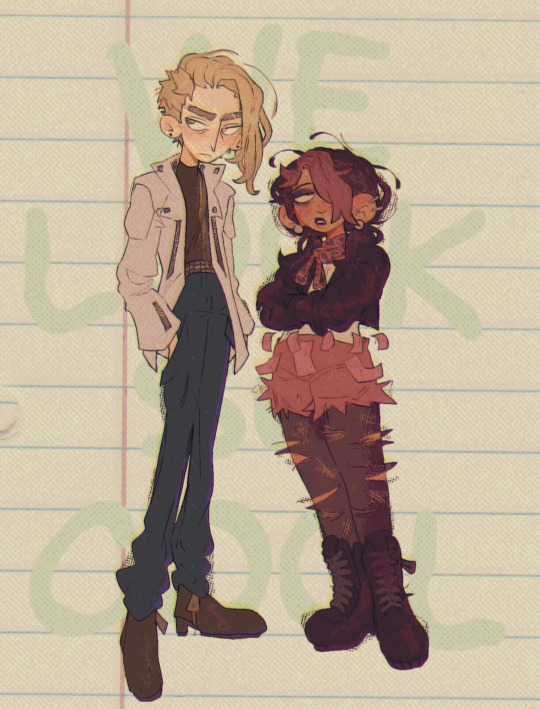
stupid stupid hair.
#WHATEVER. I DONT EVEN LIKE THEM THAT MUCH.#his hair was cut with a fork are you kidding#i forgot his eyeliner oh good lord#adrien agreste#marinette dupen chang#emonette#emodrien#paris special#he cried his mascara off bc no one understands him#my art#miraculous ladybug#he looks so naked without it. i’m sorry all the layers are already merged
2K notes
·
View notes
Text
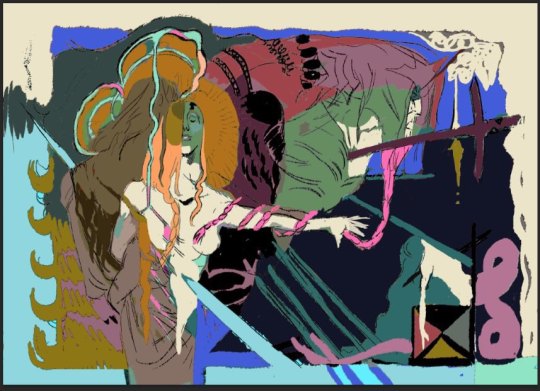

misc. eldy ring doodles
#elden ring#queen marika the eternal#godfrey first elden lord#godrick the grafted#i'm about to come full circle by finishing dark souls 3 soon so i'm happy to say this one still has a special place in my heart
1K notes
·
View notes
Text
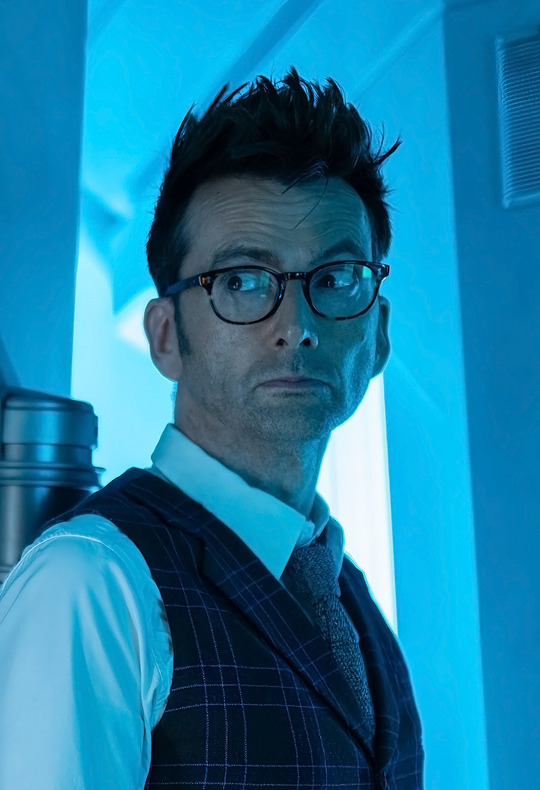
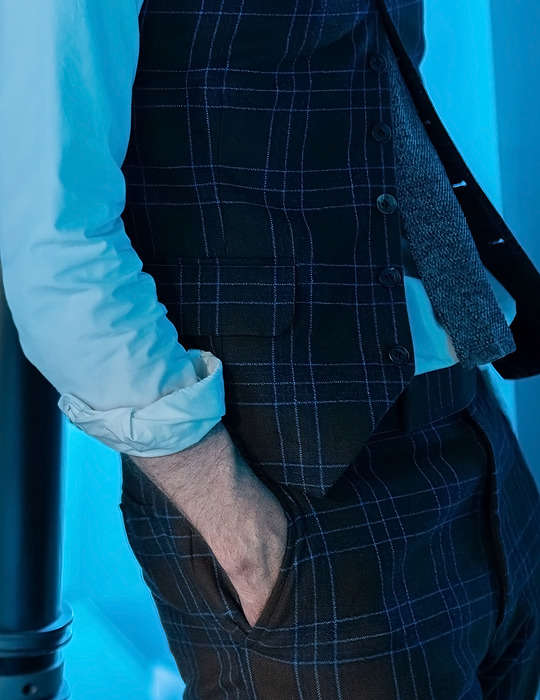
Fourteenth Doctor promo photo from the upcoming Wild Blue Yonder episode
...for Tennant Tuesday (or whatever day this post finds you)
Special thanks to [ The Black Archive ]
#david tennant#tennant tuesday#fourteenth doctor#doctor who#dw 60th#non-spoilery image#but I'll tag it anyway#just in case#I'm excited for all 3 specials#but this one especially#that suit is a thing of beauty#(on that time lord in particular)#stuff i posted#dw spoilers#doctor who spoilers#doctor who 60th anniversary
737 notes
·
View notes
Text
I precise it’s a piece of jewellery you can wear either daily or only for special occasions like weddings, you choose!And there isn’t a ‘none’ option because this isn’t a post for cowards.
#I’d wear Arwen’s necklace anyday and almost bought a replica at the medieval faire this summer but didn’t have the money#but also the leaf of lorien brooch is just gorgeous and I love wearing brooches#and I already have hair beads but my hair’s still too short to properly braid them in so it’ll wait#and for special occasions I’d totally give it a go to the ring of barahir#tolkien#the lord of the rings#tolkien polls#lotr poll#nenya#narya#vilya#the one ring#ring of barahir#leaf of lórien#jewellery#lotr jewellery
640 notes
·
View notes
Text
One thing that I feel is really interesting and often forgotten about Essek is that fundamentally, his characterization has been from the start based upon his desperation for external perspectives and connection, which, along with much of his narrative and mechanical positioning, means that he actually has an extraordinary and almost (but not actually, as I'll show) counterintuitive capacity for both growth and trust.
(Buckle in. This is a long one.)
In particular, I would argue, knowing now that many places where the plot touches Ludinus have long been marked for connecting back into the current plot, that he was quite possibly built as a prime candidate for radicalization by the Ruby Vanguard. He felt isolated from his culture, he was desperate for other connection, and he was certainly of the type to believe he was too smart to be drawn into such a thing, given his initial belief that he could control the situation and the fallout. If things had gone any other way, he easily could've been on the other side by now.
As such, he has been hallmarked by being fairly open to suggestion, perhaps for this reason, but the thing about that kind of trait is that it is both how people are radicalized and deradicalized. This is certainly true of Essek, who experienced genuine kindness and quite frankly strangeness from the Nein and was able to move from the isolation the Assembly had engendered to meaningful and genuine connection, largely propelled by his own internal reflection. By the time Nein are aware of his crimes, he's already begun to express regret to an extent and, furthermore, doubt in the Assembly, including explicitly drawing a line against Ludinus, even in a position where he was on his own and probably quite vulnerable.
Similarly, when the Nein reach the Vurmas Outpost some weeks later, he has moved from regret for the position he's ended up carrying a heavy remorse. This makes sense! He's fairly introspective, seems used to spending a lot of time in his own head, and was left with plenty to mull over. It's not some kind of retcon for him to have progressed well past where the Nein left him; it just means he's an active participant in the world who has done his own work in the meantime.
This is another interesting aspect to him. I've talked about this a bit before but I cannot find the post so I'll recap here: antagonists in D&D have significantly more agency than allied NPCs. Antagonists are active forces, against which the party is meant to struggle; allies are meant to support the PCs, which means they tend to be more passive in both their actions and their character growth. Essek was both built as an antagonist, in a position that gives him significant agency, and also was then given significant opportunity to grow specifically to act as a narrative mirror for Caleb's arc. Even when he becomes a more traditional D&D ally, he still retains much of that, though he occupies a supporting role.
I believe that this is especially true because of the nature of Caleb's arc, which I've already written on; the tl;dr of this post is that Caleb is both convinced that he is permanently ruined and also desperate to prove that change is possible. Essek is that proof, because he is simply the character in a position to do so. But this also means that his propensity for introspection and openness is accentuated! He has to do the legwork on his own, for the most part, because that's where he is in the meantime.
But he still ends the campaign necessarily constricted; he is under significant scrutiny, he's at risk from the Assembly, and he goes on the run fairly soon after the story ends. He spends most of the final arc anxious and paranoid, which is valid given the crushing reality of his situation. It would be very easy to extrapolate that seven years into this reality, he would be insular, closed off, and suspicious of strangers, even in spite of the lessons he's learned from the Nein and their long term exposure.
So seeing his openness and lightness now is surprising, but at the same time, given this combination of factors in his position in the narrative over time and his defining traits, it's not by any means unreasonable.
But one thing that I found so delightful is how much trust he exhibits, which is obviously a wild thing to say about Essek in particular, given much of what he learns is both earning and offering trust, which was something he says explicitly in 2x124 that he's never really experienced: "I've never really been trusted and so I did not trust." It makes up much of the progression of his relationship with Caleb, and the trust that he is offered by the Nein in walking off the ship is the impetus he needs to grow.
But I think it's easy to talk about trust when it comes to people who have proven themselves to you or to whom you've ingratiated yourself, and that's really the most we can say about Essek by the time he leaves the Blooming Grove. There is this sense in a lot of discussion of trust (not solely in this fandom) that it is only related to either naivete or love, but there's far more to it. Trust at its best is deliberate—cultivating an openness to the world at large is a great way to combat cynicism and beget connection instead. It allows a person to maintain curiosity and be open to experience, but it can be incredibly difficult to hold onto.
It is clear that the Essek we meet now is a very pointedly and intentionally trusting individual. He trusts Caleb and by extension Caleb's trust in Keyleth, as he shows up and picks up a group of strangers from a foreign military encampment and walks in without issue. He trusts the Hells to follow his lead moving through Zadash and to exhibit enough discretion so as to avoid bringing suspicion upon all of them. He trusts that Astrid will respond well to his entrance, but he also trusts himself and the Hells enough to execute a back-up plan in the case that she doesn't. In the end, he even trusts them enough to give them his name and identity.
He doesn't scan as someone who has spent half a dozen years living like a prey animal, afraid of any shadow he runs across in an alley, withdrawn into himself and an insular family, which would've been an easy route for him to take. He scans as someone who has learned the kind of trust borne of learned confidence and a trained eye for good will and kindness, which are crucial weapons one would need for staving off cynicism in his circumstances—as if he has survived thanks more to connection and kindness than paranoia and isolation. (If we want to be saccharine about it, he scans quite poignantly as a member of the Mighty Nein.)
So it is easy to imagine this trust and openness as a natural progression of his initial search for perspectives external to his own cultural knowledge. Though he makes those first connections with the Assembly to try to vindicate his personal hypotheses, he finds in them exposure to the deepest corruption among Exandrian mortals, which could've—and did, for a time—turned him further down that same dark path.
But it's also this same openness to exposure from the wider world that allows the Nein to influence him for the better, and in spite of the challenges he's certainly faced simply surviving over the past seven years, he seems to have held onto this openness enough to move through the world with self-assurance and a willingness to extend the kinds of trust and good will that he has been shown.
(I would be remiss not to mention that I was reminded about my thoughts on this by this lovely post from sky-scribbles and their use in the tags of 'light' to describe Essek's demeanor this episode, which is really such an apt word for it.)
#something something hope is a weapon hope is a discipline hope is a garden to cultivate!!!#HE'S SO GOOD HE IS TRULY EXEMPLAR OF THE WHOLE PHILOSOPHY OF THE NEIN AND I DO NOT THINK THAT'S AN ACCIDENT#truly just like. enormous proponent of letting trust and curiosity into your heart regardless of the horrors.#it's hard and it makes you more vulnerable and sometimes it hurts so so much but it will also save your fucking life!#cr spoilers#critical role#essek thelyss#cr meta#I was gonna apologize for the length but I'm not sorry. I'm also not sorry for being insane about him but he's so special to me.#head in my hands he's so GOOD HE'S BEST BOI! GUIDING LIGHT NORTH STAR!!! LOOK AT HIM!!!#also truly if i had two nickels for a span of time with no essek sightings where I wrote a lot of fic#with deliberate personal acknowledgment that I was writing some pretty maximal arcs for him in terms of character growth#and then end up getting essek for half an episode and having to go OH WE'RE GOING THAT FAR ACTUALLY. FUCKING INCREDIBLE.#yanno. two nickels. but good lord I am thriving that it's happened twice#augh this is ONE of the pieces I need to write this week. we're not gonna talk about it
342 notes
·
View notes
Text
Yes he's a little autistic. Yes he went crazy for a little bit and had a weird hyperfixation with nature for a few months. Yes he betrayed god for humanity. Yes he committed war crimes for a man that one time BUT HES ALSO THE LOVE OF MY LIFE AND I ADORE HIM ENDLESSLY, PATHETICALLY AND COMPLETELY
#castiel#this is about castiel#my number one most Special boy#he is everything to me#supernatural#castiel angel of the lord#spn#destiel#dean winchester
317 notes
·
View notes
Text

I’ve listened to these four albums almost nonstop for the past like two weeks…
#the oh hellos#music#the four winds#notos#eurus#boreas#zephyrus#especially eurus. that one holds something special to it#well I guess not nonstop. I’ve also listened to lord Hurons whole discography#and the forgetmenauts whole discography#AND the mechanisms whole discography
2K notes
·
View notes
Text
Back with y2k star wars babyyyy
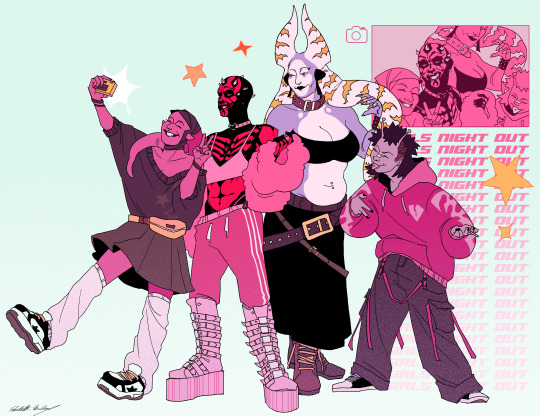
[COMMISSIONS]
Ok I could not resist drawing them again- so I suffered and drew the second pair of demonia in my life for y2k maul. What would I not do for her
Btw here is a link to the first illu that started this
Process below vvv
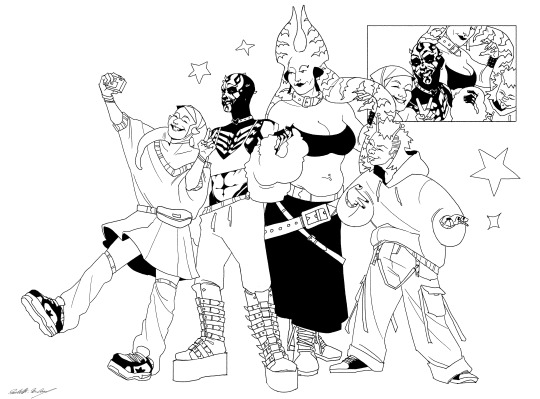

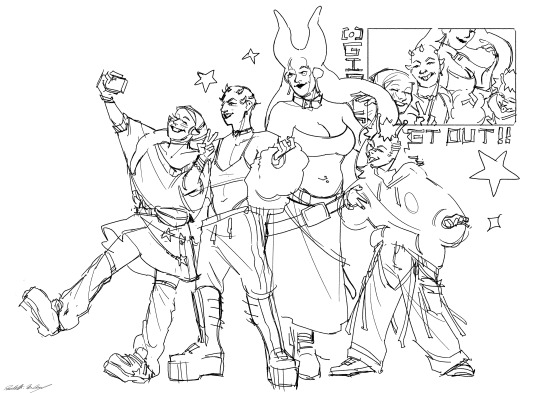
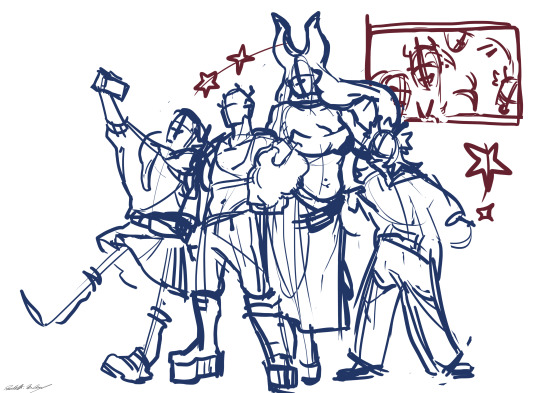
This is the direct to vhs sequel to the og drawing gllhkgkjkgkgkk
PS : one day I'll do a reference sheet for my specific maul tattoo designs- It will make my life so much more easier
#this specific ass au is so fucking silly but it will always have a special place in my heart <3#babygirl maul and elan sleazebaggano#no one is safe from my lesbian gaze#darth maul#y2k aesthetic#star wars maul#maul#togruta#twilek#sith lord#elan sleazebaggano#togruta oc#twilek oc#star wars#star wars fanart#star wars prequels#star wars aliens#star wars au#art#my art#digital art#fanart#star wars sapphic au
302 notes
·
View notes
Text
they really weren't kidding about the rom-com vibes in this season.
#*carly catalogs#bridgerton#bridgerton s3#no offense but they've said that in the past two previous seasons and sorry i did not get any rom-com vibes from s1 or s2#but then again it took me a little while longer to get into this show cause i'm not gonna lie i hated s1#idk how to explain it but something about both simon and daphne's characters book and show really pissed me off for some reason??#like... i don't like them at AAALLLLL#and i found their love story to be the least bit romantic (out of the 8)#and initially i wasn't gonna watch s2 cause of how much i didn't like s1 but the beautiful gifmakers on here got me#i enjoyed s2 sooooo much more#but THIS???!!!!!!??!?!?!?!?!?!?!#THIS#THIS IS SOME OF THE MOST HEART MELTING ROMANTIC SHIT I HAVE EVER!!!! SEEN!!!!!!!#it especially felt like one when....#cressida was explaining to lord debling that colin and pen have been friends since the featherington's moved across the street from them#oh wow would you look at how much i rambled 😳#but i can't help it that friends to lovers is MY bread and butter#colin bridgerton#penelope featherington#polin#otp: you are special to me
90 notes
·
View notes
Text
"I would've gone with you to the end, into the very fires of Mordor."

#aragorn is the man ever like tell me why i genuinely started tearing up after he said this#GUYS THESE MOVIES ARE SOO GOOD#watching the second one tmrw if I have four hours to spare for the extended edition#i should reread too#sigh... the special effects... the soundtrack... the costumes... the acting...#lotr#aragorn#chi's babbles#lord of the rings
210 notes
·
View notes
Text

Trying to figure out how to draw his stupid face (affectionate) in my style. All except the top two are screenshot redraws
#ghirahim#demon lord ghirahim#skyward sword ghirahim#skyward sword#legend of zelda#my art#you can see exactly where I gave up#really not happy with the top two ones tbh#but I already spent so much time on these supposedly sketches#his face is really special to me#his uncanniness is a feature not a bug!#he’s beautiful because of it not despite#I’m sksw ghirahim model truther#hyrule warriors did him dirty by trying to make him more conventionally attractive
168 notes
·
View notes
Note
Sorry about the color mix up. I appreciate the reply and additional info! I guess bc I know nothing about peafowl (and the fact i dont breed any type of animal), I'm having a hard time understanding how being sterile would be unethical. I do somewhat get the shortened life span. I really would like to understand this, I just sometimes need stuff explained like I'm 5.
Up front, there's no "somewhat get" to a shortened lifespan being caused by a mutation in captive populations. If an animal is capable of living 20+ years (and some live 30+ or even 40+!) and some non-essential mutation is causing them to live 7-9 years, it's flat out absolutely unethical to breed that mutation, full stop, regardless of anything else going on. That's indicative of a MAJOR problem in their genetics. There's NO ethical reason to breed that because humans like how it looks. So, even without the sterility, these birds would 100% be unethical to produce.
The short answer on sterility is this: we don't know WHY they are sterile, but they shouldn't be, and that means something has gone wrong. When something goes wrong with an animal, and it's something genetic that can be passed on, the ONLY responsible and ethical thing for a breeder to do is to stop using that animal for breeding and closely monitor any already-produced offspring for signs of the problem, and likely not breed them, either.
The longer more complicated answer is this: sometimes it's possible to separate the problem from the aesthetic when it comes to morphs, like it was for cameo + blindness, but sometimes it's NOT, like it wasn't for spider + head wobble for ball pythons. In those instances, it's... difficult. Because you're LIKELY going to produce animals that suffer the same problem as their parent(s), in the attempt to separate the problem from the aesthetic, and sometimes that's ALL you're going to produce. As a breeder, it's your absolute responsibility to NOT release the offspring into the general population, where the problem may be replicated without control, and to keep or cull the affected individuals if the problem cannot be separated from the aesthetic, or AT BEST find them guaranteed pet-only homes that will NEVER breed them.
Sometimes the problem IS purely aesthetic or harmless, like it was for pied in peafowl, and sometimes it's not, like it was for vitiligo in peafowl. The problem comes when you ASSUME a mutation is the first, and treat it like the first when it's really the second. This has caused FAR reaching consequences in the peafowl community, and I'm sure in others, where now the autoimmune disease that first bronze had has been passed into genpop by folks who thought they were breeding a harmless new variation of pied. Hybrid animals are often sterile (not in peafowl though, hybrid cristatus-muticus birds are fertile) because of a mismatch in chromosome pairing numbers, and often that's harmless. So, in some cases sterility is not an issue because it's the expected result or is otherwise harmless... but in the case of peafowl, it's NOT an expected result and we don't know if it's caused by something harmless or not.
Some species, like mice and horses and cattle and dogs, genetic testing and DNA mapping done with millions of dollars has proven that while some stuff isn't purely aesthetic, it also doesn't cause harm to the animal in a way that affects quality of life or that can be adapted for in captive care. For example, in chickens, the frizzle gene causes curled feathers in single copy and an absence of feathers in double copy. This gene is considered ethical to produce IF the breeding is done responsibly by putting a single copy bird over a zero copy bird, which produces smooth coats and frizzle coats, but it is unethical to produce double frizzles (called "frazzles") because frazzles cannot thermoregulate, can easily sunburn, and easily suffer skin injury during normal chicken activity.
For peafowl, we have NO genetic testing. We do not have the genome mapped. As far as I know there's a research group working on it (mostly for green peafowl though, in conservation efforts), but that's not remotely finished or available to the public to test anything. We don't know where any of the morph mutations sit, or what is causing them or if they do anything beyond just change the color. Sometimes color mutations are the result of malfunctions in enzymes. For charcoal specifically, we don't know what the mutation does, besides what we can observe on the outside- the birds have half or less the lifespan of normal birds, poor feather quality, and the hens are sterile. Is the sterility harmless like it is in some hybrid animals, or is it actually a major organ failing? Is it the only major organ that fails due to this mutation, or is it just the first sign of their shortened lives? Is it some deficiency in something the birds need to be healthy? Does it hurt the bird? We don't know, but we do know the mutation and the problems (multiple, please do NOT forget that this is one OF MORE THAN ONE problems) can't be separated, and so until we do know why and whether it's harmless or not, the ONLY ethical response to seeing a problem in a major organ's function linked inextricably to a mutation in color is to not propagate that mutation. If someone wanted to fork over the millions it takes to sequence and map genomes and then determine exactly what is going on with peafowl, that would be nice and good, but I don't see that happening. When I win the lottery big, I'll be doing it, but til then we can only follow normal breeding guidelines
Also, to put this into perspective... peafowl mature sexually around 3 years old. They are chicks until the turn of the new year following their hatch. They are yearlings that year, and immature 2yo next year. They aren't actually considered fully grown until 6 years old, and should live another 14+ years. Charcoal birds die a 1-3 years after full maturity. Is it a coincidence that they fail to thrive shortly after full sexual maturity, or is it linked? Again, we don't know. We don't know if the sterility is fine or if it's just a symptom of something worse.
Even without the sterility, though, charcoal has enough issues it would be unethical. If it was JUST sterility, with no other deleterious effects, then maybe it would be different. But it's not.
#peafowl#asks#anon asks#as always please bear in mind that animal breeding is NOT the same as human reproduction ethics#and I ONLY deal in animal ethics#and honestly even if it was just shit feather quality then I would personally consider it bad breeding#I asked the only person I know who still has charcoals what their issues were and lord it is worse than I thought even#she's keeping/breeding only what she can keep herself#and experimenting with feeding regimens in the hopes of correcting a nutritional deficiency#that might account for the sterility#but so far after like 10+ years she's had no luck#so it's not likely#Like there are SO MANY perfectly fine and healthy morphs out there#there's NO reason to keep making this one#it's not essential to the continuance of the species#also to anon: I'm not mad at all this is just how i sound about my special interest#I'm glad you asked questions#I appreciate you seeking info
108 notes
·
View notes
Text
To me, I hold the One Piece Live Action with the same reverence as I do Peter Jackson's Lord of the Rings.
It is a beautiful dramatization that, while it will never be able to cover the scope and complexity of the original, is able to embody the spirit of what made the story so beloved.
I feel also confident to compare One Piece to The Lord of the Rings.
Both are stories about a band of heroes who travel far across a wild, ruined world for a piece of treasure whose fate will change everything and free everyone.
Set in fantastical worlds that not so subtly mirror our own.
The Lord of the Rings is one of the best stories ever written. It was written to feel like a mythology lost to time. Something ancient and forgotten and unreal but hiding bits of truth.
And I truly believe One Piece is similar. I think its one of the greatest stories ever written.
One that has been spread all over the world. The comic circulating in 43 countries and now the live action show available in 84.
Can you imagine that scope? Can you imagine your story being read by so many people from all over the world? Can you imagine how long that legacy could be?
One Piece is the highest sold manga in the world, almost the highest selling comic in the world, and soon will surpass Harry Potter in general printed book sales. It has a theme park, restaurants, movies, shows, video games, toys.
How will all of this translate to a lasting legacy?
Will Luffy be as long-lasting as Frodo? As Hamlet? As Hercules? As Gilgamesh?
What will happen in the years after he finds the One Piece?
I, for one, think Luffy will go down in history as the most famous pirate in fiction. Truly becoming, King of the Pirates.
(Anyways, ive been over thinking again. And, i just love One Piece so much. What are y'alls thoughts?)
#one piece#one piece live action#mythology#the lord of the rings#i hope people dont hate on me for the comparison#i just love both stories so much#and i love Luffy so much#hes so so special#oda sensei#eiichiro oda#long text
245 notes
·
View notes
Text
Gandalf said ‘do not offer me that’, Galadriel said ‘I would be a queen, great and terrible,’ but Elrond said ‘get that the fuck away from me’ and this is nonsensical.
The other keepers of the elven rings were most challenged by the One, why not Elrond? Is his struggle merely hidden? Is it his Maia blood? Is it simply his mixed blood? Is that why Aragorn withstood, too?
Canonically the race of men are most easily corrupted, yet Elrond half-elven, who is almost 40% man, doesn’t notably bat an eyelash. Why?
#Probably by virtue of his strange upbringing Elrond received a measure of every talent there is to be given#everything from the magic of his foremother Luthien to the supreme skill and knowledge of his foster fathers.. which makes him remarkable#But what does that make him compared to Sauron? Elrond is obviously Special with a capital S#One goes so far as to say he is the weapon the entire first age was about forging; he and elros#And in Arwen almost every ethnic group of elves and men ever finally converge#And in some time perhaps Eriol is the final descendant of this line#but that’s a different myth#Yet I can’t help but feel its essential to understanding the resounding movement of Tolkien’s pieces#however unfinished they may be..#Anyway#lotr#lotr fotr#lord of the rings#the council of elrond#Elrond#elrond peredhil#Tolkien#jrr tolkien#silm references#Silm#lotr headcanons#middle earth#lotr hc#tolkien headcanons#tolkien lore#elven rings of power#Etc.
30 notes
·
View notes
Text
Thinking about a 6-part miniseries about Cas. The premise being that there's some way for him to get back the memories that were taken from him, and he's going through the process of re-experiencing them (and this is why we haven't seen him yet, because he's been occupied with this).
So we're following Cas through time, seeing every instance of him going off-script, and every time it gets harder and harder to reset him. And there could be 3 or 4 actors besides Misha who play Cas at various points in history. And there could be returning spn actors for different angels as well as recasts for different "versions" of them. There would be a chance to get into some complex relationships between sibling-soldiers who are under a cult-like authority.
The way I'm imagining it, it would be "kalaidoscopic" to use Edlund's word for describing Cas' perspective. Non-linear narratives layering on top of each other, and making use of motifs and recurring elements in an almost dream-like way, building Cas' story as someone who fought to be his own person. The whole thing being kind of epic and fantastical and philosophical.
And of course it ends with Cas' reunion with Dean. I think in previous episodes there could be short little "missing scenes" situated within the main spn canon, to really re-establish Dean and Cas' relationship for any uninitiated viewers. But by the time it gets to the end, after following Cas' whole story, Dean is framed as the last instance in a long series of Cas' struggles to assert his own sense of right and wrong, his own sense of self. Dean is the time when it finally stuck. So there's a real narrative weight, within the 6 episodes, to them reuniting, it's not just for the sake of finishing what spn started.
And I'm still imagining the reunion scene being something like what I posted about here. Where Dean asks Cas to jailbreak Heaven with him, break the rules with him one more time, run away so they can live their own life. So that Dean is the realization of everything Cas' story has been driving towards.
And then the thing with Jack being taken over by God happens (see linked post). Because a) Cas can't just go off with Dean and leave Jack behind, so there has to be a reason for him to oppose what Jack's been doing in Heaven, and the answer to that is he's God instead of Jack. And b) the series ends on an open page, with Dean and Cas going back into the world as these twin agents of chaos and free will, and you have the sense that they're always going to be out there fighting for free will and fighting to be masters of their own lives, and the story will never end.
#spn#supernatural#castiel#destiel#deancas#not actually fanfic#@ chaos machine hire me please#I'm imagining what the show trailer could be like#With like 4 or 5 different voices layered on top of each other and blending into one another#saying 'my name is castiel. i'm an angel of the lord'#and some nice set pieces from different periods of time#and a shot where the camera is circling around cas and his various vessels are morphing into each other#and this is a fantasy scenario so of course there would be the budget for some true form special effects as well#oh for the opportunity to pitch to jackles
232 notes
·
View notes